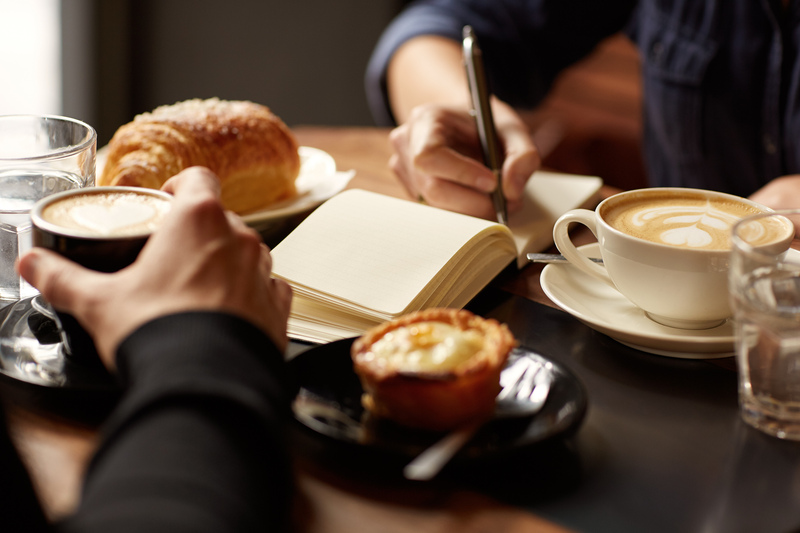How to Avoid Stress by Packing Effectively When Moving
Posted on 18/06/2025
How to Avoid Stress by Packing Effectively When Moving
Moving to a new home is exciting, but it can also be overwhelming and stressful. Packing is often the most challenging and time-consuming part of the process. However, with the right strategies, you can avoid stress by packing effectively when moving. This comprehensive guide will help you take control, stay organized, and actually enjoy your moving experience!
Why Effective Packing Reduces Moving Stress
Efficient packing is the foundation of a smooth, low-stress move. When you pack thoughtfully, you save time, avoid last-minute panic, and reduce the risk of lost or damaged belongings. Effective packing also streamlines the unpacking process in your new home, helping you settle in quickly and comfortably. Let's dive into top strategies for packing efficiently and avoiding moving day chaos!

1. Start Early: The Golden Rule of Stress-Free Packing
Procrastination is the main enemy of stress-free moving. If you want to avoid stress by packing effectively when moving, give yourself plenty of time. Starting early lets you:
- Sort and declutter at a relaxed pace
- Gather quality packing materials without a mad rush
- Pack fragile or rarely-used items first
- Plan for special logistics (perishables, pets, valuables, etc.)
How Early Should You Start Packing?
For a typical 3-bedroom home, begin serious packing at least four weeks before moving day. Larger homes or families with young children may need six weeks or more.
2. Declutter Before You Pack
Why move what you don't need? One of the best ways to reduce moving stress is to declutter your belongings before you start packing. This not only cuts down on the volume you need to pack and haul, but also keeps your new home organized from day one.
Decluttering Tips to Make Packing Easier
- Room-by-Room Sweep: Focus on one area at a time for manageable progress.
- Sort items into keep, donate, sell, or discard piles.
- Host a garage sale or use online marketplaces for items in good condition.
- Arrange donations early to avoid last-minute scrambling.
Bonus: The fewer items you pack, the lower your moving costs!
3. Gather High-Quality Packing Supplies
Avoid stress by packing efficiently and safely with the right materials.
- Sturdy boxes in various sizes
- Bubble wrap and packing paper
- Strong packing tape and dispensers
- Permanent markers for labeling
- Specialty boxes (wardrobe, dish, electronics, etc.)
- Zip-top bags for hardware or small items
Avoid free cardboard boxes from grocery stores--they're often weak or infested. Instead, invest in new boxes or rent reusable plastic bins if available, which also help reduce your environmental impact.
4. Create a Smart Packing Strategy
Figuring out how to pack efficiently when moving is crucial. Rather than tossing items into boxes at random, create a room-by-room plan.
Tips for an Organized Packing Process
- Pack by Room: Never mix items from multiple rooms in one box.
- Label Every Box: Not just the room, but also the contents (e.g., "Kitchen - Pots and Pans").
- Number boxes for easy inventory tracking.
- Add Fragile Warnings: Use bold, visible notes on delicate-item boxes.
- Keep Boxes Under 50 lbs: Prevent injuries and box breakage.
Check off each packed room on your master list to track your progress and stay motivated.
5. Use Expert Packing Techniques
Packing effectively for your move means protecting your valuables and maximizing box space. Here are essential packing tips:
- Heavier on Bottom, Lighter on Top: This prevents crush damage.
- Fill Empty Spaces: Use towels, socks, or packing paper to prevent shifting.
- Disassemble furniture and keep all hardware in labeled bags taped to the main piece.
- Wrap electronics in anti-static bubble wrap and pack in original boxes if possible.
- Double-wrap fragile items: Use plenty of cushioning between breakables.
Bonus Tip: Color Coding
Assign a color to each room and mark boxes with matching colored tape or stickers. This makes unloading and unpacking faster and more efficient.
6. Prepare an Essentials Box
Packing a "first-night" box is key to reducing moving stress.
- Personal care products (toothbrush, soap, medications)
- Basic kitchen items (plates, utensils, snacks, coffee)
- Chargers and electronics
- Bed linens and towels
- Change of clothes
- Children's or pet supplies if needed
Label this box boldly and pack it last so it's easily accessible when you arrive at your new home.
7. Avoid Last-Minute Packing
Last-minute packing is a major cause of moving stress. Suddenly facing a mountain of unpacked possessions leads to mistakes, broken items, and exhausted tempers. To avoid stress when packing for your move:
- Stick to your packing timeline
- Ask for help if you start falling behind
- Take breaks to prevent burnout
Remember, it's better to pack a little every day than to try to do it all the night before the move.
8. Get Help When Needed
Moving is a team effort. Don't hesitate to enlist family, friends, or professional packers if your schedule is too tight or your move is complicated. Professionals bring experience and efficiency that can take a tremendous load off your mind, especially if you have valuable or fragile belongings.
9. Take Care of Yourself During the Move
Effective packing isn't just about boxes and tape--it's also about self-care. Avoiding stress on moving day means:
- Staying hydrated and eating nutritious meals
- Getting a good night's sleep before moving day
- Wearing comfortable clothing and sturdy shoes
- Delegating tasks and accepting help where possible
Your well-being is as important as your belongings!
10. Keep a Positive Mindset
Moving can be tough, but maintaining an optimistic outlook helps ease stress. Focus on the exciting journey ahead, and don't sweat the small stuff. Celebrate each box packed and room completed--you're making progress!
Bonus Section: Moving Day Tips for a Smooth Transition
- Do a final walk-through to check for left-behind items
- Carry essential documents and valuables yourself
- Supervise movers or helpers to ensure boxes go to the right rooms
- Stay flexible--unexpected hiccups can crop up
- Take short breaks to recharge physically and mentally
Frequently Asked Questions - How to Avoid Stress by Packing Effectively When Moving
How can I make packing less overwhelming?
Break the process down into small, daily tasks. Use a checklist and set reasonable goals for each day. Staying organized and starting early will prevent overwhelm.
What should I pack first to reduce stress?
Begin with items you use least often, such as off-season clothes, books, or decorative pieces. This way, your everyday life won't be disrupted as you pack.
Should I use plastic bins or cardboard boxes?
Plastic bins are durable and reusable, making them a sustainable choice for those planning future moves. Cardboard boxes are cost-effective and easy to find. Choose what best fits your needs.
How do I pack fragile items to prevent breakage?
Wrap each item individually with bubble wrap or packing paper. Use sturdy boxes and cushion empty spaces with towels or clothing. Mark boxes as "Fragile" and stack them with care.
Is it worth hiring professional packers?
If you have limited time, valuable items, or just want a low-stress experience, hiring pros is a worthwhile investment. They provide expertise, top-quality materials, and peace of mind.

Conclusion: Enjoy Your Move with Smart Packing
Effective packing is the secret to avoiding stress during a move. By starting early, decluttering, using quality supplies, and packing in an organized manner, you set yourself up for a smooth, positive transition to your new home. Remember to take care of your health, ask for help as needed, and celebrate your progress. With a calm, proactive approach, you can actually enjoy your moving process--and look forward to making fresh memories in your new space!
Additional Resources
Ready to avoid stress by packing efficiently during your next move? Share your experiences or questions in the comments below!
Latest Posts
Transform Moving Chaos into Calming Order
How to Avoid Stress by Packing Effectively When Moving
Efficient Cleaning Tips for a Stress-Free Move Out



